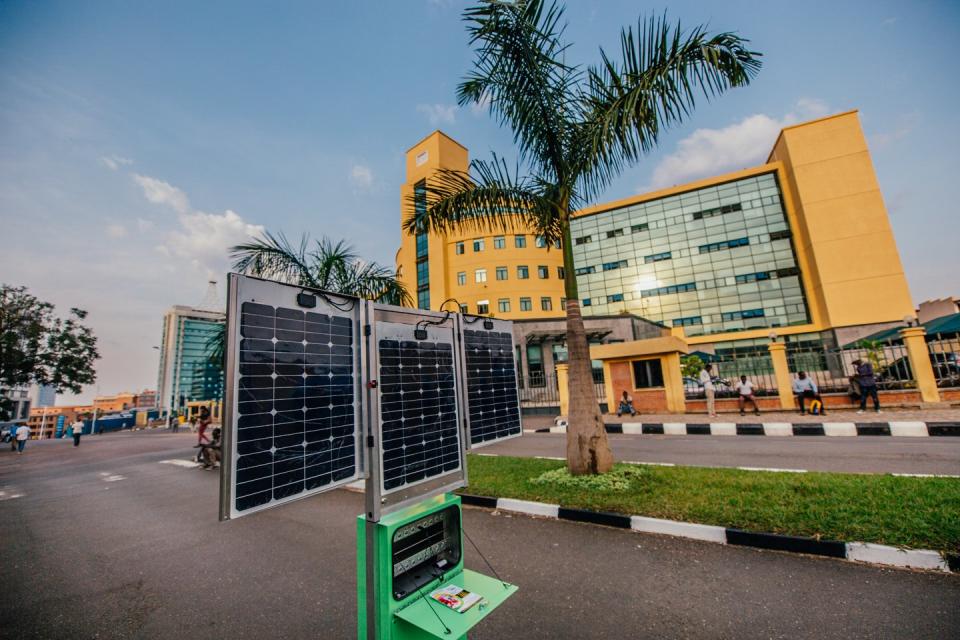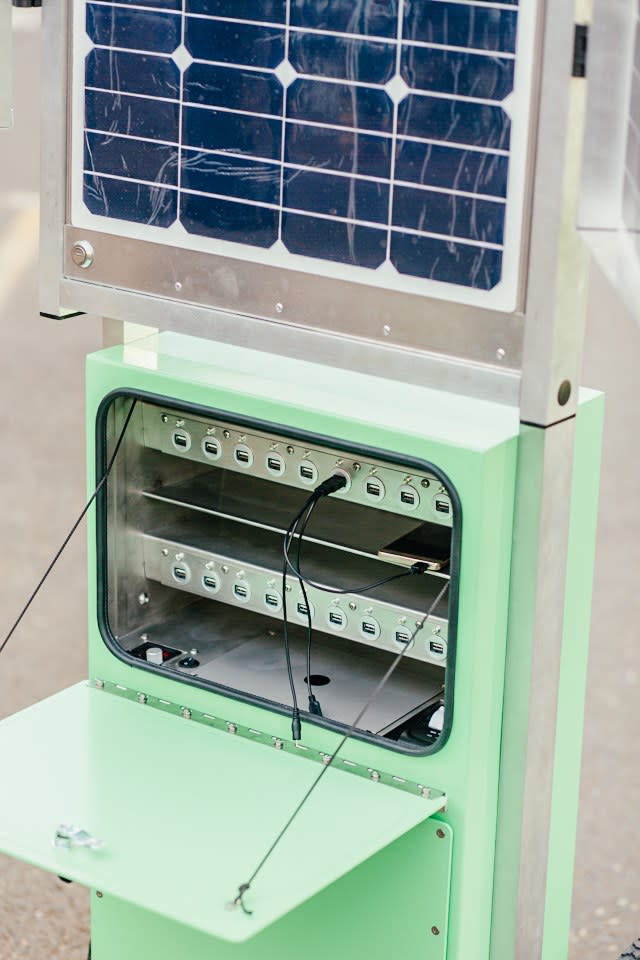Solar-Powered Kiosks Are Helping Rwandans Power Their Phones and Stay Connected
Electricity is something many people around the world take for granted, but imagine how it would be to live without it for most of the day. Power outages are everyday occurrences for many African countries. To make matters worse, two out of three people within the sub-Saharan African region reportedly don’t have access to electricity. This reality hasn’t stopped people across the continent from investing in smartphones. Statistics show that one third of mobile users (250 million, to be exact) have their own. But what’s the point of these devices if you have no way of charging them?
Enter: the African Renewable Energy Distributor (ARED), a service company based in Rwanda providing alternative energy solutions with solar-powered kiosks, which locals refer to as Shiriki Hubs. “The idea of the kiosk was simple,” says Henri Nyakarundi, founder of ARED. “I saw charging stations at airports when I travel and thought it would be great to do something similar.”

From rural to semi-urban towns and refugee camps, ARED tends to set up kiosks where they’re needed most. It's been reported that it costs only five cents to fully charge a phone. Nyakarundi wanted to make an impact in these areas, as the lack of electricity can set individuals way back since most small farmers and business owners make or receive payments through mobile money technology. According to Nyakarundi, there are kiosks that serve up to 700 customers a day, but being able to charge cellphones is just a small part of the organization’s vision.
ARED also has kiosks with high-capacity routers, which can be found in urban settings, that include affordable hotspot data connection at only three cents for 10 minutes, along with downloadable health or education information that customers can have offline. “We build edge storage capability on these kiosks, so we can localize content distribution,” explains Nyakarundi. “Data is very expensive, especially for low-income people, and that’s why this edge network is key, because we’re able to distribute offline content that sits on a router.”

The goal has always been to keep as many people as connected as possible. While investments are being made in major cities, Nyakarundi believes the lesser-populated areas can’t be overlooked. “There’s a need for this solution in most African countries,” Nyakarundi said. “We’re the only company out there that has built this muscle of a kiosk with all these functions built into one. This digital inclusivity is tremendously lacking in Africa right now, and the idea is to bring access to applications, storage, and other network resources closer to the user and their devices, therefore eliminating or minimizing the cost of bandwidth, latency, or other costs.”
Currently, the Shiriki Hubs can be found in Rwanda and Uganda, but the Ivory Coast and Nigeria are the company’s next markets. “We’re also looking at South Africa for next year,” Nyakarundi added.
Originally Appeared on Architectural Digest

